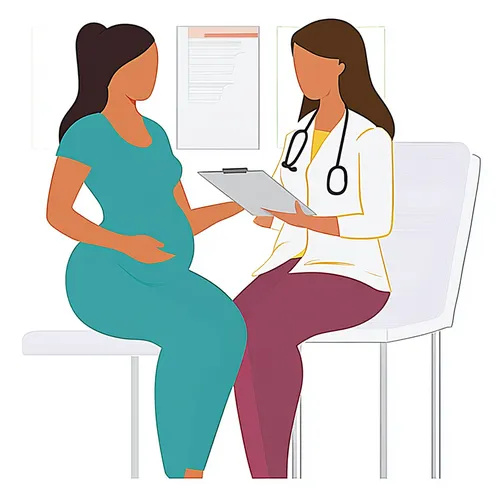What’s the Deal with Strep B?
Ever heard of Group B streptococcus? No? Well, you’re not alone. This sneaky little bacterium, often called Strep B for short, is like that quiet neighbor you never notice. It’s hanging out in about a third of our intestines and a quarter of women’s vaginas, minding its own business. But here’s the kicker: it’s the UK’s number one troublemaker when it comes to life-threatening infections in newborns.
Now, don’t panic! Carrying Strep B doesn’t mean you’re sick. In fact, you wouldn’t even know you’ve got it unless you took a test. It’s like having a silent houseguest – most of the time, it’s no bother at all.
Why Should You Care?
You might be thinking, “If it’s so common and harmless, why are we talking about it?” Well, here’s where things get tricky. In rare cases, if a baby gets exposed to Strep B around birth time, it can spell trouble. We’re talking infection, and in the worst scenarios, even death.
Let’s put it in perspective: about 1 in 1,000 babies in the UK develop a Strep B infection. That’s roughly 700 little ones each year. Sadly, between 75 and 100 of these babies don’t make it. It’s a bit of a mystery why some babies get infected while others don’t, even when exposed.
Is Your Baby at Risk?
Now, don’t go fretting just yet. Your baby’s chances of developing a Strep B infection only go up if:
- You’re having an early bird (premature labour before 37 weeks)
- Your waters break ahead of schedule (again, before 37 weeks)
- Your waters break more than 18 hours before your baby decides to make an appearance
- You’re running a fever during labour
- You’re a known Strep B carrier during this pregnancy
- Strep B showed up in your urine tests this time around
- You’ve had a baby with a Strep B infection before
Spotting the Signs: Early and Late Onset
Let’s talk symptoms. About 60% of babies with Strep B infection will start showing signs right from birth, and 90% within the first two days. We call this “early onset” Strep B infection. Doctors can treat it with antibiotics through an IV, but even with top-notch care, it can be fatal for 1 in 8 infected babies.
What should you look out for? Keep an eye out for:
- Grunting (and not the cute kind)
- Poor feeding (is your little one not interested in milk?)
- Lethargy (unusually sleepy or unresponsive)
- Low blood pressure
- Irritability (more than the usual newborn fussiness)
- Abnormal temperature, heart rate, or breathing rate (either too high or too low)
But wait, there’s more. About 10% of Strep B infections are fashionably late to the party, showing up after the baby is 2 days old. This “late-onset” infection often comes as meningitis with septicemia – a nasty combo. Most babies pull through with treatment, but up to 30% might face long-term issues.
For late-onset infection, watch for:
- Fever
- Poor feeding
- Drowsiness
And if you spot signs of meningitis like a shrill cry, dislike of being held, or a bulging soft spot on the head, don’t wait – call your doctor pronto!
Testing for Strep B: A Bit of a Pickle
Here’s where things get a bit frustrating. The NHS doesn’t routinely test for Strep B carriage. You can ask your doctor for a test, but they might not agree. Why? The NHS test can be as reliable as a chocolate teapot, giving false negatives up to 50% of the time when it should be positive. There’s a more reliable test called PCR, usually done around 35-37 weeks of pregnancy, but it’s not standard practice.
Keeping Your Baby Safe: What Can You Do?
If you don’t tick any of the risk factor boxes we mentioned earlier, breathe easy. Your baby’s chances of developing a Strep B infection are pretty slim. But if you’re in the higher-risk club, don’t worry – there’s a game plan.
Research shows that giving antibiotics through a vein from the start of labour (or when your waters break, whichever comes first) until your baby is born can prevent Strep B infections in most cases. Ideally, you should get these antibiotics for at least 4 hours before delivery.
If your baby’s at risk, they should get a once-over from a paediatrician right after birth. If you didn’t get those 4 hours of antibiotics, your baby might need to start on them until they get the all-clear. And if your little one shows any signs of infection, it’s antibiotics, stat!
Oh, and just so you know, C-sections aren’t recommended solely to prevent Strep B infection. It’s not a get-out-of-Strep-B-free card.
Final Thoughts
Remember, Strep B can hitch a ride on hands too, so everyone should wash up before handling a newborn. The good news is that as your baby gets older, the risk of catching Strep B decreases. It’s rare after one month and practically unheard of after three months.
So, there you have it – everything you need to know about Strep B. It might sound scary, but knowledge is power. Stay informed, stay vigilant, and most importantly, enjoy your journey into parenthood!
Photo “Strep B: What Every Mum-to-Be Should Know” by Anthony Cunningham for Zoom Health
Zoom Health is a leading UK supplier of Home Health Tests and Earplugs





